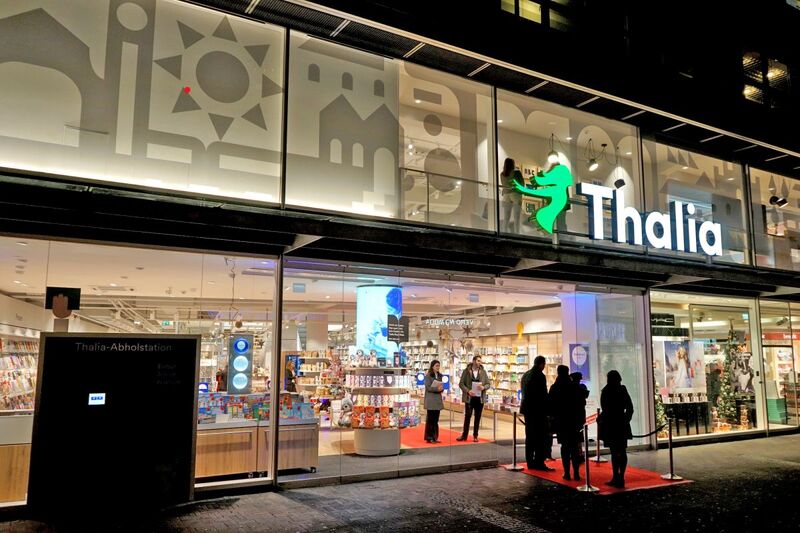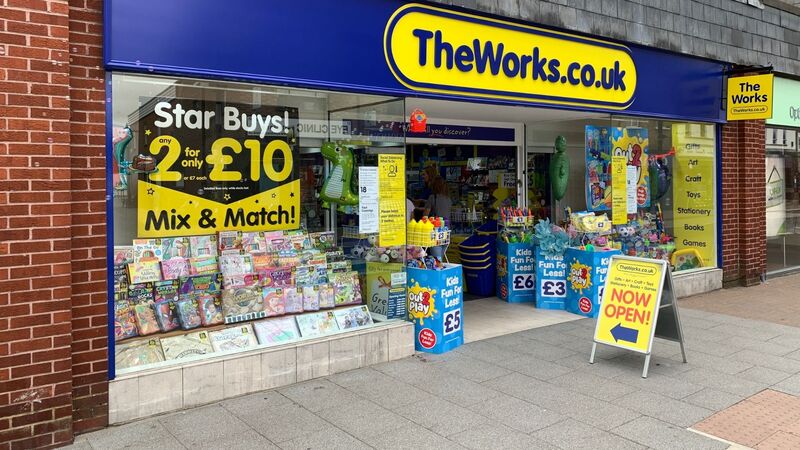You are viewing your 1 free article this month. Login to read more articles.
Prospecting at Brighton
It is often said that there is a shortage of information about the market for books. This complaint has increasingly less justification. Most of the speakers at the Booksellers Association Conference in Brighton had assembled useful data from a variety of sources, giving the audience, if not incontrovertible facts about the prospects of the book business in the age of e-commerce, at least evidence on which to base informed debate and decisions.
Here is a digest of some of the key findings reported at Brighton.
How is the book market faring? David Kewley, president of the Publishers Association, had mixed news. In the past five years, he reported, spending on consumer books had risen by just under 20%, from £1.6bn to £1.9bn, double the rate of growth in the economy. However, this increase took place against a background of a boom in expenditure on leisure activities, and, in this context, books were performing less well. From 1990 to 1998, he reported, consumer spending on recreational activities had grown by 64%. But spending on books had grown by only 38%; this had not matched the boom on spending on the cinema, records, videos and magazines.
Adair Turner, former director general of the Confederation of British Industry, quoted figures showing that spending on books had declined slightly as a percentage of household expenditure, from 0.45% in 1985 to 0.38% in 1998.
Are we over-bookshopped? "We simply have too much floor space chasing too few customers," said Martin Grindley, Booksellers Association president.
(There are some obvious examples of expansion among the bookselling chains. In Bookseller Publications' 1992 report Bookselling in Britain, Waterstone's and Dillons had 178 branches; the HMV Media Group, incorporating both chains, now has 219 bookselling branches. There were nine Ottakar's branches in '92; now there are 71. There were 10 branches of Books Etc; now there are 29 Books Etc and eight Borders stores. Sussex Stationers has grown from 26 to 41 branches.)
Booksellers, however, are not out of step with their counterparts in other sectors. Beverley Hodson, managing director of W H Smith, quoted Verdict Research's figure of an 11.3% expansion in total retail space in the past 10 years. According to the British Retail Consortium, retail sales had grown, on average, by 2% a year during that period. Verdict expected town centre retail space to grow by a further 5.3%, and out-of-town space by 14.8%, by 2005.
How significant is the e-economy? This question was addressed, with great authority, by Adair Turner, formerly of the CBI.
First, how great is our consumption of the products of ICT (information and communication technology) industries? Not as great as you might imagine: in the US in 1998, ICT consumption was only 2.4% of GDP. Mr Turner did not expect this figure to rise significantly, because "this stuff is very cheap and keeps getting cheaper".
Mr Turner went on to examine whether it was true that ICT companies would play a more significant role in the economy of the future. Not, it seems, as employers: the US Bureau of Labor Statistics forecast that employment in these companies as a percentage of total employment would not rise above 5% by 2008. However, there would be big increases in employment in such "old" industries as restaurants, education and health. "We'll spend more on what we cannot automate, and less on what we can."
Would all companies of the future be Internet companies? Only in the sense, Mr Turner argued, that all companies of the present are telephone companies. One would say of the Internet, as one does of the telephone, that it was necessary to one's business, not that it gave one a competitive advantage.
What is the size of the Internet book market? Martin Grindley quoted Book Marketing Ltd's Books and the Consumer survey as reporting that online retailers accounted for 2% of book sales in November and December last year. "Why do I feel that's an underestimate?" he asked, rhetorically.
Wholesalers certainly disagree with these figures, reporting privately that sales to Internet retailers account for up to 20% of their business. Publishers have a vaguer sense of the size of the online market, because they do not know what proportion of their sales to wholesalers are going to Amazon, Bol and the rest. One leading publisher attending the conference reported that Amazon was now a bigger customer for him than was Borders/Books Etc; that would suggest a consumer market share of between 3% and 5%. (Whitaker BookTrack agrees with this estimate, but points out that online retailers are also making significant inroads in the professional and academic sectors.)
What is the future of online retailing? Martin Grindley quoted a variety of predictions. E-commerce would be worth £9.5bn by 2001 (NOP); £2.6bn by 2003 (Jupiter); and £7.4bn by 2004 (Verdict). Verdict also estimated that by 2004 Internet book sales would be worth £430m. That is 13% of the estimated total UK book market (£3.3bn).
Mr Grindley's forecast was that, by about 2004, sales of books through the Internet would level off at about 12% to 14% of the book market.
To sum up: nobody knows what is going on. Most predictions, said Professor Bob O'Keefe of Keele University, were "complete and utter garbage".
The question that arises from these projections is whether online retailing is so revolutionary. At 15% of the market, say, Internet booksellers would become a significant competitor to terrestrial counterparts, rather than retailers that would transform the shape of book buying. Amazon and co were similar to book clubs and other direct selling organisations, David Kewley argued, adding: "the e-commerce threat [to booksellers] is less substantial than is sometimes suggested".
Will online buyers shop around? Professor Bob O'Keefe said that studies at Brunel University had shown that people will trust brand names to deliver the products they want.
One might expect established brands such as W H Smith and Waterstone's to carry their customers online. But it seems that these terrestrial names do not automatically have prestige in cyberspace, where Amazon has established an impressive reputation.
"Contrary to widely held beliefs," Kent Freeman of US wholesaler Ingram said, "online consumers don't do much comparison shopping before buying." Seventy per cent of book and CD shoppers were loyal to a single site over the course of a year.
What are the drawbacks of Internet retailing? The cost to an Internet retailer of acquiring a customer is £150, Bob Shingleton of Bertrams reported. For a bricks and mortar retailer, the cost is £50.
Mr Shingleton quoted a Boston Consulting Group finding that four out of five online purchasers had experienced one failed transaction. The survey also found that 28% of all online purchases failed. Another study (Jacob Nielsen), quoted by Professor O'Keefe, showed how unreliable online transactions could be. Job applicants were asked to apply online for one of six positions; only 26% managed successfully to complete and submit the forms.
"This is a bad interface," said Professor O'Keefe, who quoted the extraordinary statistic that 19% of Internet users never used their scroll bars. His prediction was that the mobile telephone would supplant the desktop computer as the preferred carrier of Internet applications.
If he is right, the potential growth of e-commerce sites such as Amazon is limited. He imagined mobile users, having read reviews on their phones, coming in to shops to buy the books, which they would pay for by using the phones as scanning devices.
The cost of stockholding As well as being expensive to acquire, online customers are expensive to serve. In order to make their deliveries speedier and more accurate, Internet retailers are likely to hold more titles themselves. Last week, Amazon announced deals intended to increase its stocks of titles from smaller publishers (The Bookseller, 19th May).
However, most sales come from a range of 5,000 top titles. Titles outside that range turn over more slowly, and are therefore much more expensive to stock. Amazon.com's distribution and fulfilment costs in the last quarter of 1999 represented 16% of sales (The Bookseller, 11th February).
The demand for range was affecting wholesalers too. "It's hard to have a relationship with a publisher for which you sell one title a year," Kent Freeman of Ingram said. "But that's what our customers are demanding."
How fast are print-on-demand and e-books growing? Kent Freeman of Ingram reported that Lightning Source, the wholesaler's digital content arm, had shipped close to one million p.o.d. books, and was now selling them at the rate of 80,000 a month. Lightning Source had content from more than 500 publishers, and serviced more than 10,000 accounts. Its electronic bookshelf was growing at the rate of more than 250 titles a week. WHS m.d. Beverley Hodson's presentation included the statistic that 70 US publishers, including Random House and St Martin's Press, had committed to the Rocket eBook.
Ingo Reese of NuvoMedia, responsible for the Rocket eBook, suggested that publishers might break even on electronic titles with sales of just 30 downloads.
Stephen King's recent e-book, Riding the Bullet, recorded 400,000 downloads in two days.
Conclusions Online retailers will continue to grow, but they will not revolutionise the market. Their potential is limited by the constraints of the medium and by the costs involved in attracting customers and fulfilling orders.
Electronic books and books printed on demand will become commonplace. But traditional retailers may well sell them: Barnes & Noble, as Beverley Hodson pointed out, will be offering e-books in 960 bookstores by next year.
It is likely that terrestrial booksellers will lose business in the educational and professional markets, which are highly suited to the online delivery of texts. In consumer markets, booksellers will need to conform to the fashion of positioning themselves as part of the leisure industries, spending on which will continue to grow, Adair Turner told the conference. David Kewley's figures, however, suggested that the book industry would have to work hard to maintain its share of leisure expenditure.
The economics of the high street, Beverley Hodson said, are challenging: low or zero retail price inflation, increasing wage and property costs, a ceiling on gross margins.
Booksellers face constraints both in cyberspace and on land. Bob Shingleton, who used Robert Spector's Amazon.com: Get Big Fast (Random House) as a source to predict that Amazon would open bricks and mortar bookshops, said that in future "having a physical as well as a virtual brand will be a big advantage". Beverley Hodson said that W H Smith aimed to be a "multi-channel content provider", offering the convenience of online delivery as well as "sensory rich shopping" for high street customers.
On land, Ms Hodson said, "retail operations and supply chain efficiencies are essential", as were exciting, dramatic environments. Bob Shingleton talked about how independent booksellers would need to make use of services providing economies of scale, and to take advantage of their local knowledge. Veterans of Booksellers Association conferences will have found that many of the brave new developments discussed in Brighton had a familiar ring.














